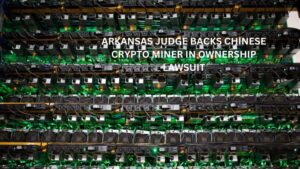Key Takeaways
- The Fifth Circuit court found that Tornado Cash’s smart contracts cannot be considered “property” under the International Emergency Economic Powers Act.
- Court stated that OFAC’s actions violated the scope of its authority under the IEEPA.
On November 26, the U.S. Fifth Circuit Court of Appeals ruled that the U.S. Treasury Department had overstepped its legal authority by sanctioning Tornado Cash’s immutable smart contracts.
The case centers around Tornado Cash, a decentralized privacy protocol and crypto mixer designed to obfuscate Ethereum transactions. In August 2022, the U.S. Treasury’s Office of Foreign Assets Control (OFAC) sanctioned Tornado Cash, citing its involvement in money laundering activities, including the facilitation of over $7 billion in illicit transactions, with some funds reportedly linked to North Korea’s Lazarus Group. This move was part of the U.S. government’s effort to curb illegal financial activities facilitated through digital assets.
However, the Fifth Circuit court found that Tornado Cash’s smart contracts—self-executing lines of code that facilitate transactions—cannot be considered “property” under the International Emergency Economic Powers Act (IEEPA).
The IEEPA grants the Treasury authority to impose sanctions on foreign property and entities, but the court ruled that smart contracts, being immutable and beyond the control of any individual or entity, do not meet the definition of property.
Judge Don Willett, who authored the opinion, clarified that the Treasury is permitted to target property, not technology. He noted that Tornado Cash’s code is designed to be unmodifiable, meaning that no one can alter or control it.
“Perhaps Congress will update the law to target modern technologies like crypto-mixing software,” Willett wrote, acknowledging that current legislation struggles to address rapidly evolving technologies. He emphasized, however, that it was not the court’s role to amend the law; rather, it was up to Congress to make any necessary changes.
This ruling reversed a lower court decision and has been hailed as a significant win for privacy advocates and blockchain developers who argue for clearer guidelines on the regulation of decentralized technologies. In the case, six Tornado Cash users, supported by crypto exchange Coinbase, argued that because Tornado Cash’s smart contracts cannot be owned or controlled, they should not be subject to sanctions. The court agreed with this reasoning, further asserting that OFAC’s actions violated the scope of its authority under the IEEPA.
Bill Hughes, senior counsel at blockchain company ConsenSys, emphasized that “these smart contracts are not ownable and therefore cannot be blocked under federal law.” The court’s ruling clarifies that Tornado Cash’s open-source software cannot be considered property subject to sanctions, making it a landmark decision for the future of decentralized technologies.
Despite the ruling, the court did not invalidate the sanctions entirely. The case is being sent back to the district court, which will now have to reconsider the legal merits of the case in light of the appeals court’s interpretation of the law. This means that while the smart contracts at the heart of Tornado Cash cannot be sanctioned, other aspects of the protocol, or related tech, may still be subject to legal scrutiny.
Coinbase’s Chief Legal Officer, Paul Grewal,backed the development, stating, “Blocking open-source technology entirely because a small portion of users are bad actors is not what Congress authorized.”






